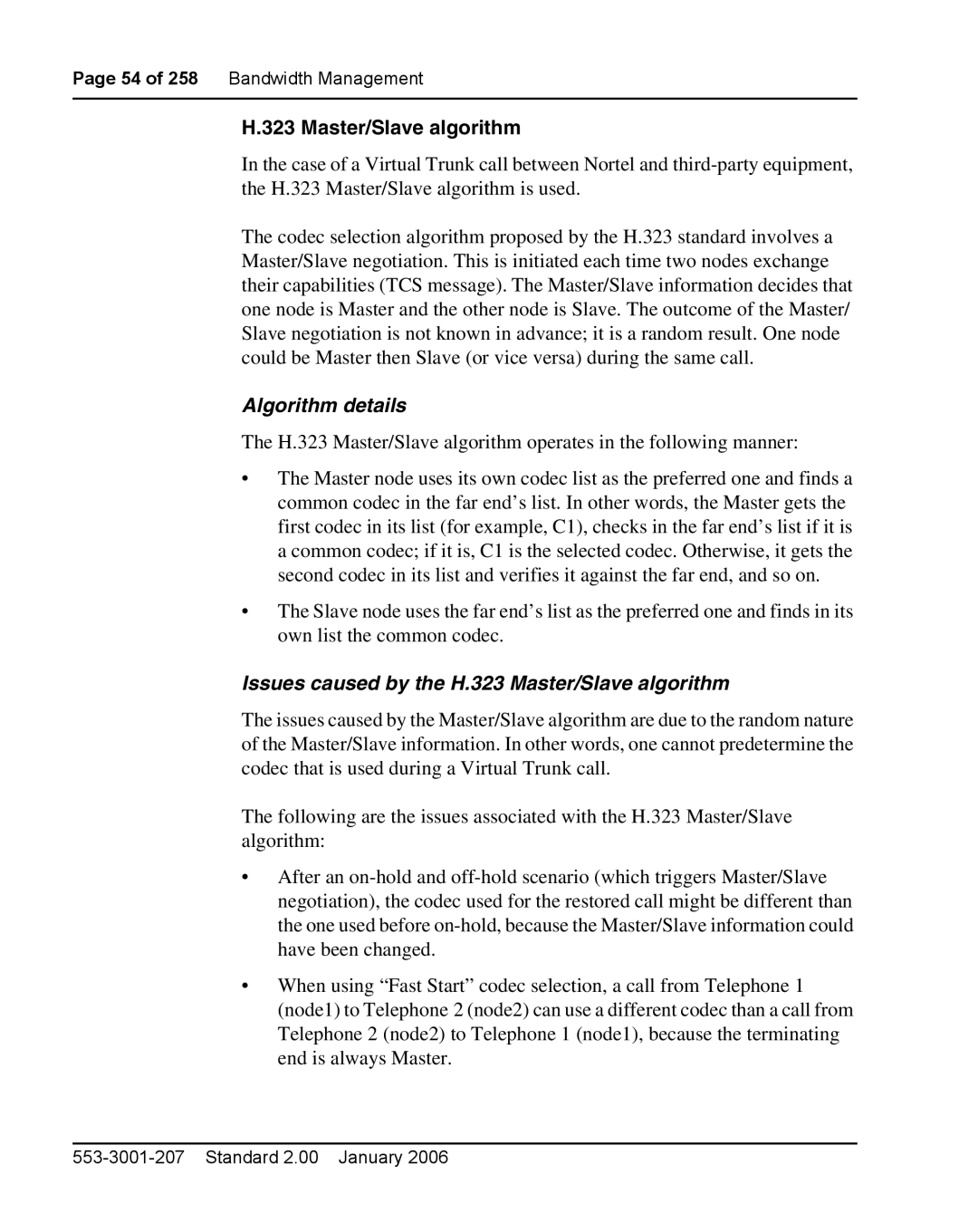
Page 54 of 258 Bandwidth Management
H.323 Master/Slave algorithm
In the case of a Virtual Trunk call between Nortel and
The codec selection algorithm proposed by the H.323 standard involves a Master/Slave negotiation. This is initiated each time two nodes exchange their capabilities (TCS message). The Master/Slave information decides that one node is Master and the other node is Slave. The outcome of the Master/ Slave negotiation is not known in advance; it is a random result. One node could be Master then Slave (or vice versa) during the same call.
Algorithm details
The H.323 Master/Slave algorithm operates in the following manner:
•The Master node uses its own codec list as the preferred one and finds a common codec in the far end’s list. In other words, the Master gets the first codec in its list (for example, C1), checks in the far end’s list if it is a common codec; if it is, C1 is the selected codec. Otherwise, it gets the second codec in its list and verifies it against the far end, and so on.
•The Slave node uses the far end’s list as the preferred one and finds in its own list the common codec.
Issues caused by the H.323 Master/Slave algorithm
The issues caused by the Master/Slave algorithm are due to the random nature of the Master/Slave information. In other words, one cannot predetermine the codec that is used during a Virtual Trunk call.
The following are the issues associated with the H.323 Master/Slave algorithm:
•After an
•When using “Fast Start” codec selection, a call from Telephone 1 (node1) to Telephone 2 (node2) can use a different codec than a call from Telephone 2 (node2) to Telephone 1 (node1), because the terminating end is always Master.
